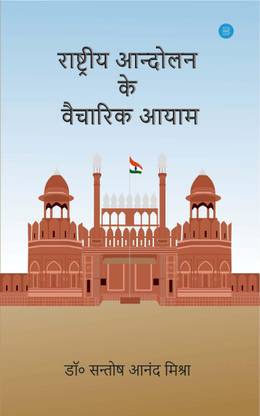Debendranath Tagore: The Spiritual Pillar of the Bengal Renaissance (15 May 1817 – 19 January 1905)
Biographical Introduction
Debendranath Tagore (1817–1905) was one of the leading figures of the Indian Renaissance. He was born on 15 May 1817 into the illustrious Tagore family of Kolkata. His father, Dwarkanath Tagore, was a wealthy businessman and philanthropist with strong ties to the British. However, unlike his father, Debendranath was drawn more toward spirituality and philosophy than worldly affairs. He studied at Hindu College (now Presidency University), where he gained proficiency in English, Mathematics, and Philosophy.
Spiritual Awakening and Self-Enquiry
A significant turning point in Debendranath's life came in 1838 when he underwent a deep phase of spiritual reflection and self-exploration. Following a profound inner experience, he turned toward the study of Vedic and Upanishadic literature. As a result of this quest, he founded the Tattwabodhini Sabha, an intellectual and spiritual forum for dialogue and contemplation. During this period, he emphasized the unity of God, the immortality of the soul, and moral living as the essence of religion.
Revival and Leadership of the Brahmo Samaj
After the death of Raja Rammohan Roy, the Brahmo Samaj lost momentum. In 1843, Debendranath formally joined the movement and breathed new life into it. He gave the organization a more structured, doctrinal, and spiritual direction. Under his leadership, the Brahmo Samaj actively opposed idol worship, ritualism, and superstitions.
Key principles under his leadership included:
- Monotheism (belief in one God)
- Rejection of idol worship
- Emphasis on Upanishadic knowledge
- Advocacy for women's education and equality
- Opposition to caste discrimination and untouchability
‘Brahma Dharma’ and Philosophical Contributions
Debendranath sought to redefine religion beyond rituals, aligning it with ethics and self-realization. He authored Brahma Dharma, a seminal text that explained Upanishadic principles in simple terms. This work became a spiritual guide for Brahmo followers.
According to him:
- The primary goal of religion is purification of the soul and realization of God.
- Knowledge, devotion, and morality form the three pillars of true religion.
- Divinity resides in every human being; hence, serving humanity is serving God.
Contributions to Social Reform
Debendranath did not confine himself to religious scriptures but actively challenged social evils. He led movements against casteism, child marriage, and the practice of sati.
Highlights of his social vision:
- He supported women’s education and helped establish schools for girls in Bengal.
- He upheld widow remarriage as morally and religiously justified.
- He regarded the caste system as a barrier to human progress.
Contributions to Education and Literature
Recognizing the importance of modern education, Debendranath promoted a system that integrated religious and moral values. He provided both traditional and modern education to his son Rabindranath Tagore, which greatly influenced the poet's worldview.
He edited the Tattwabodhini Patrika, a journal that became a key platform for intellectual discourse and the dissemination of Vedantic and Upanishadic thought to the masses.
‘Atmacharit’ (Autobiography): A Historical Document
Debendranath's autobiography Atmacharit is a gem of Bengali prose and a mirror reflecting the social, religious, and intellectual milieu of 19th-century Bengal. It provides deep insight into his spiritual journey, social philosophy, and the workings of the Brahmo Samaj.
Influence on Rabindranath Tagore
Rabindranath Tagore, who later became a world-renowned poet, was deeply influenced by his father. Debendranath’s spiritual ideals, devotion to God, and affinity for Brahma knowledge were deeply ingrained in Rabindranath’s upbringing. These elements are clearly visible in his literary and philosophical works.
Legacy of Debendranath Tagore
Debendranath's legacy extended far beyond the Brahmo Samaj. He sparked a wave of intellectual and spiritual revival in Bengal and across India. He became a symbol of religious tolerance, self-purification, moral living, and humanistic values. He laid the spiritual foundation for the Bengal Renaissance and shaped the ethical dimensions of Indian modernity.
Death and Remembrance
Debendranath Tagore passed away on 19 January 1905. Yet his writings, ideas, and actions continued to influence Indian society and thought. Many institutions and philosophical traditions at Santiniketan were founded in his memory.
Conclusion
Debendranath Tagore was not merely a religious leader; he was a visionary, a thinker, and a reformer. His life was a testament to the ideals of the Upanishads — spiritual pursuit, service, and simplicity. He redefined Indian spiritual consciousness in a modern context. His ideas remain deeply relevant, offering guidance on secularism, tolerance, and human dignity.












0 Comments
Thank you